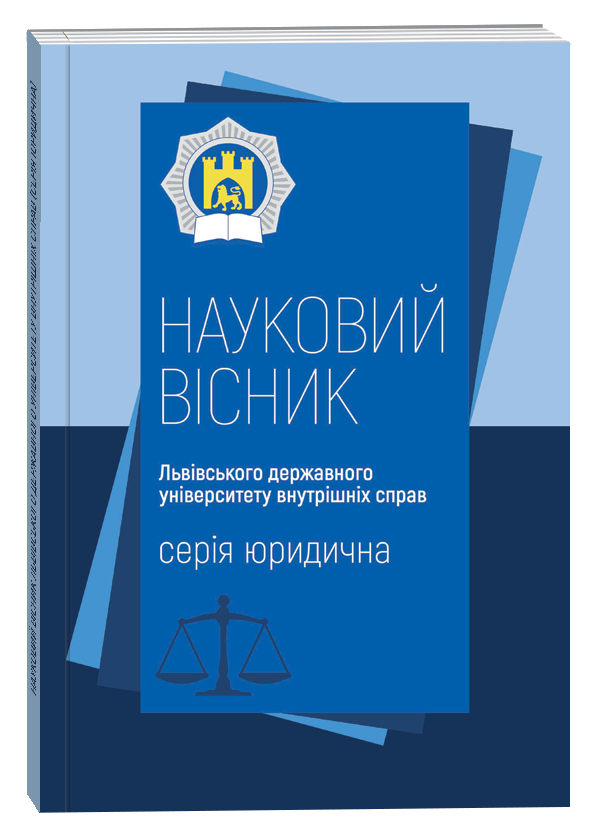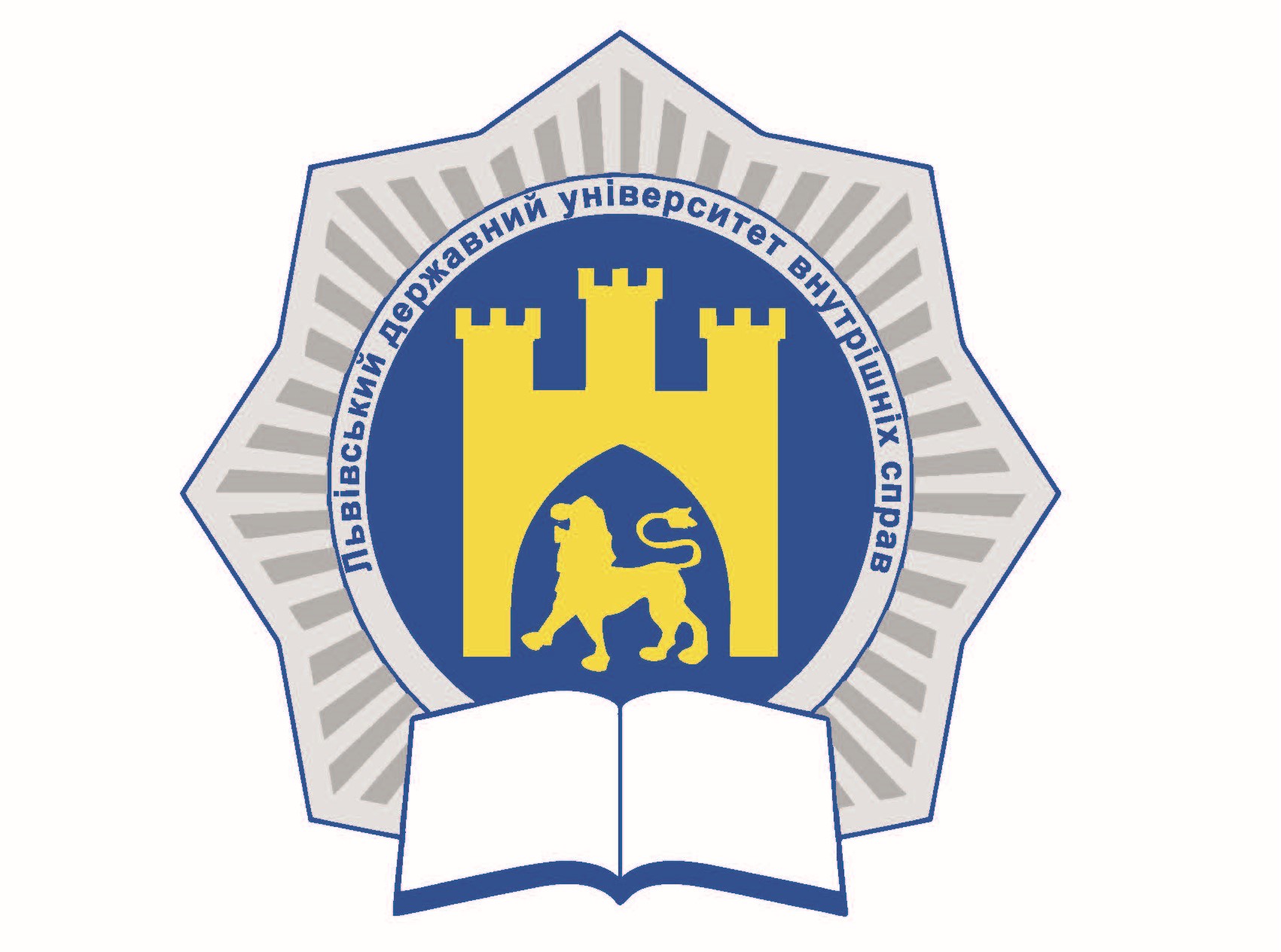STANDARDS OF PROOF IN LAW ENFORCEMENT ACTIVITIES OF THE COUNTRIES OF ANGLO-SAXON LEGAL SYSTEM
DOI:
https://doi.org/10.32782/2311-8040/2024-1-1Keywords:
law enforcement activity, Anglo-Saxon legal system, criminal procedure proof, standards of proof, reasonable suspicion, balance of probabilities, beyond a reasonable doubt, language skills for professional activitiesAbstract
The multifaceted concept “law enforcement activity” creates an urgent need to conduct a special theoretical and legal study, including its comparative and legal components. The complex, systematic study of the problem of law enforcement activity is acutely relevant in Ukraine nowadays. At the current stage of the development of statehood and legal science, law enforcement activities face new complex challenges and tasks that require comprehensive, systematic research and effective solutions. The role of an individual, not the state, the concept of natural law, the needs of a person, society, and then a state are decisive. The essential tasks typical for most law enforcement agencies and aimed at the protection of rights and freedoms of a person and citizen constitute the fundamental principle which should be used as the basis for revealing the essence and content of the tasks of law enforcement activities. Law enforcement (security) activity of the state implements the security function of law. The relevant provisions are reflected in the Constitution and laws of Ukraine and other European states. The system of law enforcement bodies is an organic component of society, a product of its activity, reflection of mentality, and the level of civilizational development. Learning from the positive experience of other states in the organization and functioning of the law enforcement sytem can prevent mistakes, miscalculations and negative phenomena, which is especially relevant for Ukraine on the way of its democratic development. The unification of standards of law enforcement activity will contribute to increasing its effectiveness and cooperation between law enforcement agencies. Today, the process of convergence of various criminal procedure systems of the world is taking place. And in this regard, the Anglo-Saxon system of criminal procedure is quite interesting, it has the features that are different from the Ukrainian system and deserve attention. In particular, the sources of criminal procedure law are judicial precedents, normative legal acts and legal doctrine. The system is based on adversarial process and equity, such phenomena of the criminal proceedings as the plea guilty agreement, the jury trial, the concept of restorative justice, discretion of the powers of persons conducting criminal proceedings originate from it. Another feature of the criminal procedure of the Anglo-American system is the specificity of the implementation of evidentiary criminal procedural activities. The concept of the standards of proof is quite new for the criminal procedure in Ukraine. The source of its borrowing is the criminal procedure activity of law enforcement agencies of the Anglo-Saxon legal family. Therefore, it seems to be important and necessary to consider the specifics of the activities of this institution in the countries that are part of this legal system. This study and further implementation of the methods in Ukraine will provide an opportunity to increase the quality and efficiency of evidentiary standards application in law enforcement activities in our country. The professional research of the Anglo-Saxon law-enforcement system requires the sufficient English language skills. The development of academic and communicative skills for law enforcement officers will provide access to the sources of information in the English language, essential for both: research and practical activities. The growing importance of learning a foreign language is necessitated by the rapid entry of our country into the European space and the introduction of integration reforms, which, in turn, requires significant changes in the approaches to teaching of foreign languages. The materials of the article represent both theoretical and practical value. They can be used for further scientific research on the peculiarities of the domestic criminal procedure proof, as well as for proper understanding and implementation of it into law-enforcement criminal procedure activities.
References
Вапнярчук В. Стандарт кримінального процесуального доказування. Вісник Національної академії правових наук України. 2015. № 1. С. 100–112.
Вапнярчук В.В. Теорія і практика кримінального процесуального доказування: монографія. Х.: Юрайт, 2017. 408 с. URL: https://pravo-izdat.com.ua/index.php?route=product/product/download&product_id=4280&download_id=1330
Крет Г.Р. Міжнародні стандарти доказування у кримінальному процесі України: теоретико-правові та практичні основи: монографія. Калуш: Петраш К.Т., 2020. 452 с.
Крет Г.Р. Сфера застосування і зміст стандартів доказування «обґрунтована підозра», «розумні підстави вважати» та «ймовірна причина» у кримінальному процесі країн англосаксонської правової системи. Науковоінформаційний вісник Івано-Франківського університету права імені Короля Данила Галицького: Журнал. Серія Право. 2019. № 7. С. 145–152.
Кримінальний процес: підручник / [О. В. Капліна, О. Г. Шило, В. М. Трофименко та ін.]; за заг. ред. О. В. Капліної, О. Г. Шило. Харків: Право, 2018. 584 с.
Степаненко А.С. Стандарт доказування «поза розумним сумнівом» у кримінальному провадженні: дис. … канд. юрид. наук: 12.00.09. Одеса, 2017. 234 с. URL: https://dspace.onua.edu.ua/server/api/core/bitstreams/a00395f1-a340-49ba-a402-d077238518e3/content
Степаненко В.В. Стандарти доведення в кримінальному судочинстві Канади. Юридичний бюлетень. 2016. Вип. 3. С. 133–138.
Степаненко В.В. Стандарти доведення в кримінальному судочинстві Сполученого Королівства. Форум права. 2017. № 1. С. 171–174. URL: http://nbuv.gov.ua/UJRN/FP_index.htm_2017_1_30.
Степаненко В.В. Стандарти переконання (досвід Сполучених Штатів Америки). Форум права. 2016. № 3. С. 245–249. URL: http://nbuv.gov.ua/UJRN/FP_index.htm_2016_3_45.
Толочко О. Критерії визначення стандарту доказування вини поза розумним сумнівом у кримінальному провадженні. Вісник Національної академії прокуратури України. 2015. № 4. С. 5–10.
Теорія та практика кримінального процесуального доказування: навч. посіб. для підготовки до іспиту / В. В. Вапнярчук, С. В. Давиденко, О. В. Капліна та ін. Харків: Право, 2021. 256 с.
Choo Andrew L.-T. Evidence. Third Edition. Oxford: Oxford University Press, 2012. 435 р.
Clermont Kevin M. Standards of Proof Revisited. Vermont Law Review. 2009. Vol. 33. No. 3. Р. 469–487.
Model Codes for Post-Conflict Criminal Justice. Vol. ІІ. Model Code of Criminal Procedure. Edited by Vivienne O’Connor and Colette Rausch with HansJoerg Albrecht and Goran Klemencic. Washington: Unites States Institute of Peace Press, 2008. 554 р.
Monaghan Nicola. Law of Evidence. Cambridge: Cambridge University Press, 2015. 528 р.
Proof of Disputed Facts on Sentence: Report 76 of the New Zealand Law Commission. Wellington, 2001. 51 р.
Rai Udai Raj. Fundamental Rights and Their Enforcement. New Delhi: PHI Learning Private Limited, 2011. 803 р.
The Amendment IV to the United States Constitution. URL: https://www.constitutionfacts.com/us-constitution-amendments/bill-of-rights/.
The King v. Jenkins [1949] HCA 69; (1949) 80 CLR 626. URL: http://www6.austlii.edu.au/au/cases/vic/VicLawRp/1949/51.pdf.
The Queen v. Proudlock [1979] 1 S.C.R. 525. URL: https://scccsc.lexum.com/scc-csc/scc-csc/en/item/2612/index.do.
Williams Charles Robert. Burdens and Standards in Civil Litigation. Sydney Law Review. 2003. Vol. 25. Issue 2. P. 165–188. URL: http://classic.austlii.edu.au/au/journals/SydLawRw/2003/9.html#fn103.









